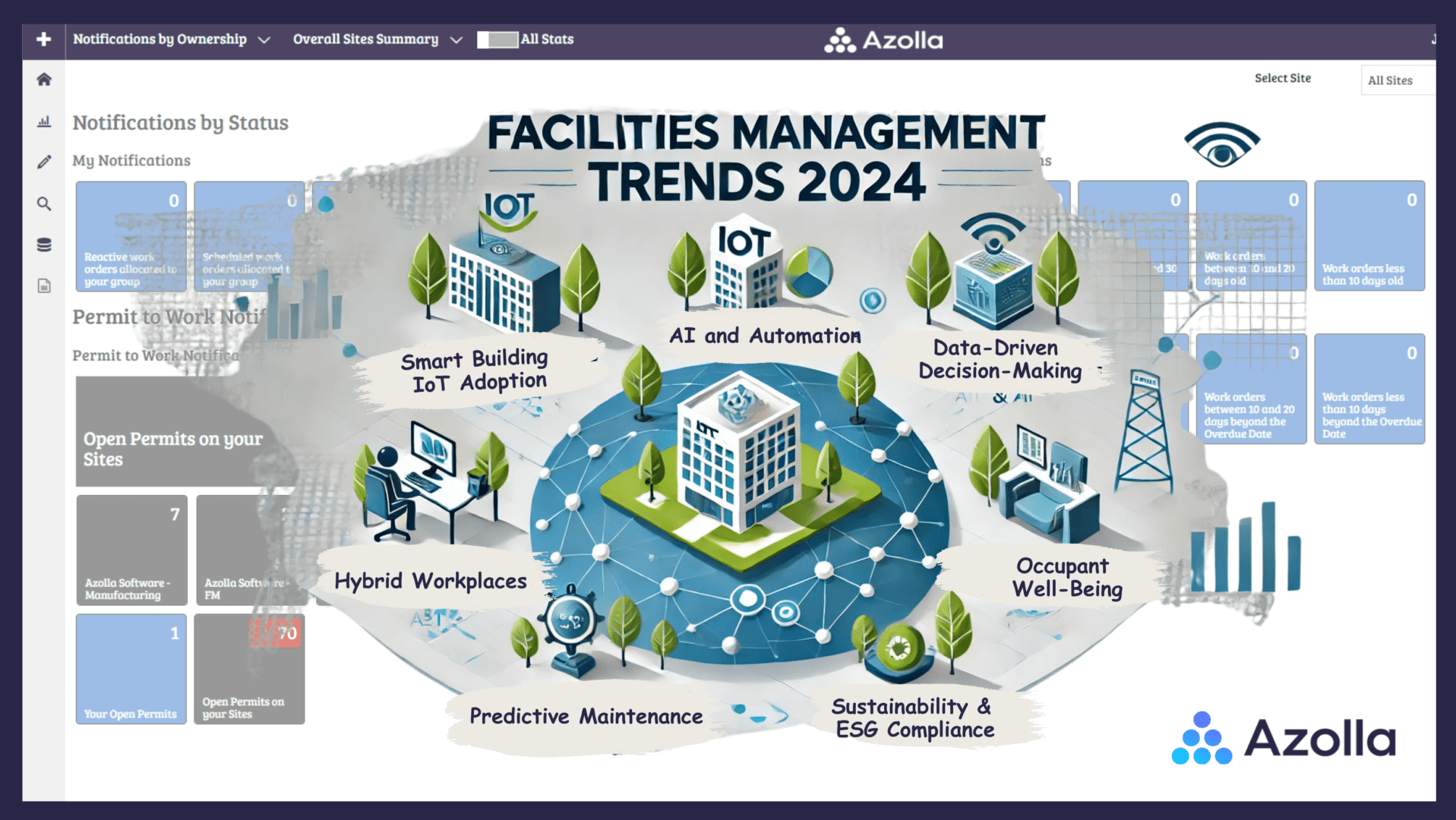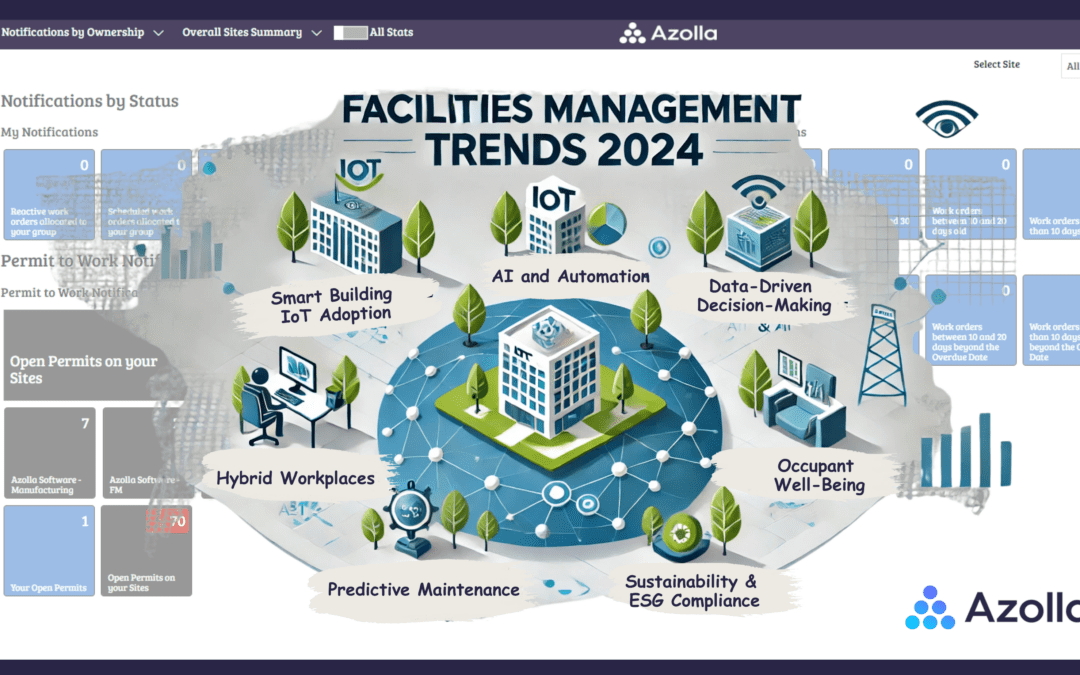Facilities Management Trends to Watch in 2025
The facilities management industry is evolving rapidly, driven by advancements in technology, sustainability initiatives, and the need to adapt to changing work environments. In 2024 there are several key trends which are dominating the sector that facilities and operations managers should keep an eye on to stay competitive and efficient as we move towards 2025. Here are the 7 trends that will shape the future of facilities management:
1. Smart Building IoT Adoption:
The Internet of Things (IoT) continues to revolutionise facilities management. By integrating IoT devices into buildings, facilities managers can optimise energy use, improve security, and enhance the overall building performance. The data collected from these smart systems allows for real-time monitoring, leading to more informed decision-making and cost-saving measures.
2. Sustainability & ESG Compliance:
With growing pressure to meet environmental, social, and governance (ESG) standards, sustainability is no longer optional. Facilities managers are now focused on reducing energy consumption, improving waste management, and promoting sustainable building practices. This trend will continue to grow as more regulations are introduced, and companies work towards achieving net-zero goals.
3. Hybrid Workplaces:
The hybrid work model is here to stay. As organisations embrace flexible working arrangements, facilities management teams are tasked with redesigning office spaces to accommodate both remote and in-office workers. Optimising space usage and creating comfortable, collaborative environments is key to maintaining employee productivity and satisfaction.
4. Data-Driven Decision-Making:
Data is becoming the foundation of decision-making in facilities management. With access to vast amounts of data through IoT devices, sensors, and software systems, facilities managers can make smarter decisions about maintenance, energy usage, and space optimisation. The ability to analyse this data enables proactive management and cost reductions.
5. AI and Automation:
Automation and artificial intelligence (AI) are reshaping the way facilities are managed. From predictive maintenance and robotic cleaning systems to AI-powered energy management, automation can help streamline operations, improve efficiency, and reduce human error. Facilities managers can leverage AI to handle repetitive tasks, freeing up time for more strategic work.
6. Occupant Well-Being:
Creating a healthy and comfortable environment for building occupants is now a top priority. From air quality monitoring to ergonomically designed workspaces, facilities management is increasingly focused on occupant well-being. This not only improves employee satisfaction and productivity but also helps companies attract and retain talent.
7. Predictive Maintenance:
Predictive maintenance uses advanced data analytics and IoT sensors to predict when equipment or systems are likely to fail. By identifying potential issues before they become problems, facilities managers can prevent costly downtime and extend the lifespan of critical equipment. This proactive approach helps to reduce repair costs and enhance the overall reliability of facilities.
Take Action for 2025:
As these trends continue to reshape the facilities management landscape, staying ahead of the curve will be crucial for your success. Are you ready to optimise your operations, improve sustainability, and create smarter, more efficient environments?
If you want to take your facilities management strategy to the next level, contact us at Azolla today to discover how our cutting-edge CAFM and IoT solutions can help you stay ahead in 2025 and beyond.
Request a demo through the schedule time button on the bottom right of your screen or Contact us at contactus@azollasoftware.com to learn more about how Azolla can help you achieve your goals in the evolving FM sector!


